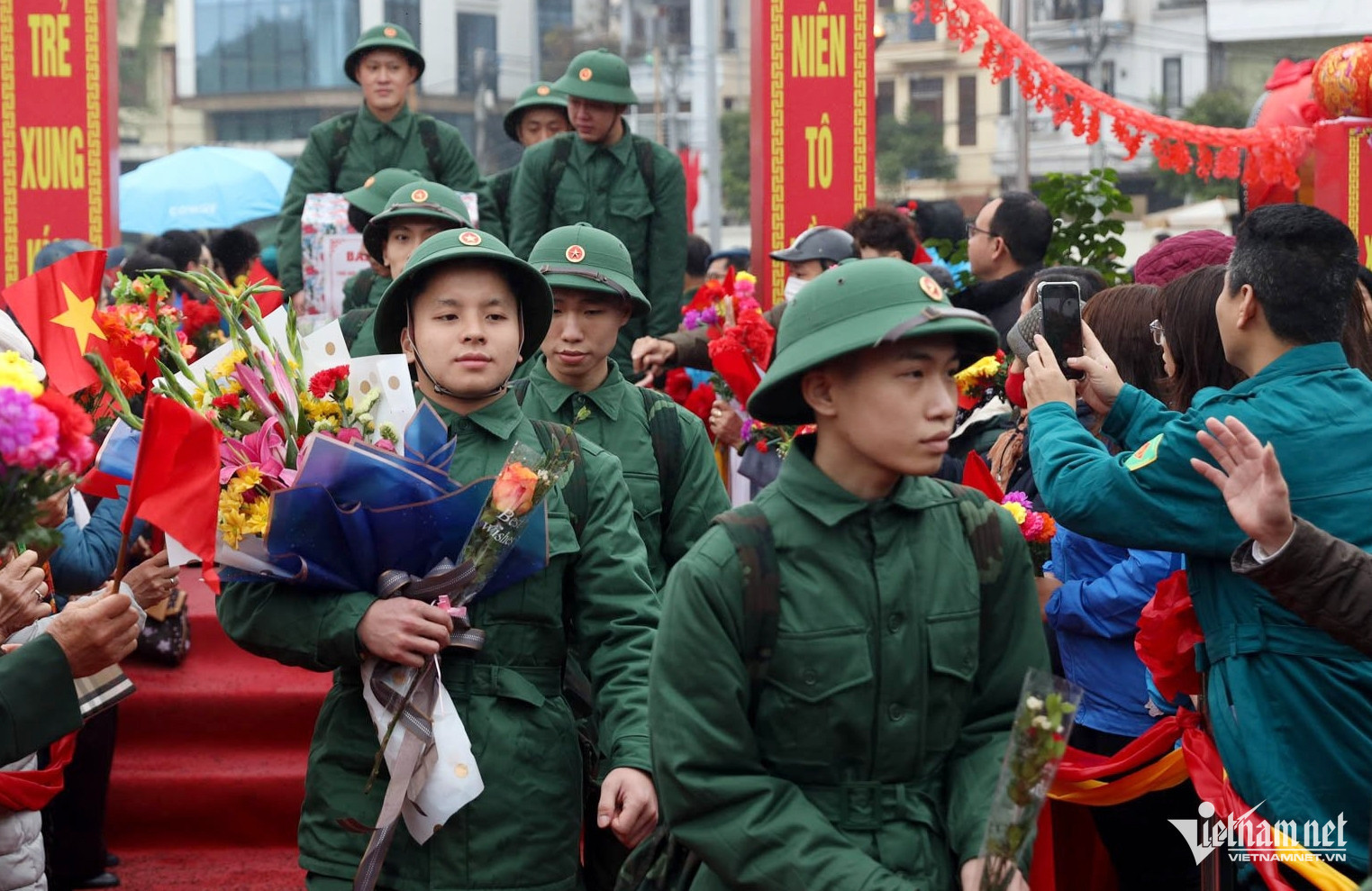
From February 13 to 15, young men across Vietnam will officially begin their mandatory military service for 2025. This year, the recruitment process has been strengthened with stricter health screenings to minimize ineligible enlistments and administrative inefficiencies.
Under the Law on Military Service and the Prime Minister’s directive, the nationwide conscription process will be conducted in a single phase. The official enlistment ceremonies will take place over three days.
On February 13, 52 provinces and cities, including Hanoi Command and multiple military regions, will hold handover events. The following day, six provinces under Military Region 4 will conduct their ceremonies.
The final phase will take place on February 15, covering five provinces under Military Region 2.
The Ministry of National Defense has instructed local authorities to enhance the registration, selection, and enlistment process to ensure fairness and transparency.
The military is working to prevent misclassifications that could lead to wrongful exemptions or missing eligible recruits. Strict screening is in place to ensure only those meeting the required standards are enlisted.
Speaking with VietNamNet, Major General Luong Van Thang, Deputy Director of the Military Personnel Department, outlined key updates to the 2025 recruitment cycle.
In previous years, medical screenings primarily relied on clinical examinations, with additional tests conducted only when necessary.
However, after recruits arrived at their assigned units, secondary screenings frequently uncovered hidden medical conditions that resulted in costly replacements.
To address this issue, the 2025 recruitment process now includes both clinical and advanced medical tests from the outset.
On December 6, 2023, the Minister of Defense issued Circular 105, establishing updated medical criteria for military service candidates.
However, vision standards will continue to follow regulations set in Circular 148, issued on October 4, 2018.
By implementing stricter and more standardized health assessments, the military aims to reduce last-minute replacements and improve recruitment efficiency.
This year, the military is prioritizing candidates with university and college degrees. The strategy aligns with the armed forces' long-term goal of enhancing combat effectiveness and modernizing its ranks.
By selecting higher-quality recruits, the military aims to strengthen its overall capability, build a robust reserve force, and develop a future leadership pipeline for both military and civilian sectors.
Tran Thuong